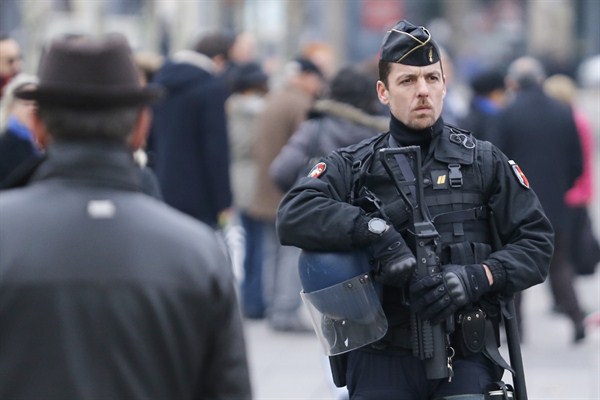More than two weeks after the Paris attacks of Nov. 13, much still remains unknown about the terrorists—three have yet to be identified—and the nature of the organizational and logistical networks behind the plot. As details come to light, they will continue to inform a better understanding of the actual threat and the best ways to counter it. In the meantime, with the immediate shock somewhat faded, it is possible to weigh what we now know about the attacks in a more considered manner, and to draw some conclusions about France’s initial responses.
The profiles of the attackers as established so far confirms that, as in the Charlie Hebdo and Hyper Cacher attacks in January, they were mainly French citizens with foreign training. However, unlike in January, this time the attackers appear to have returned to France with plans that were formed in Syria. This suggests at the very least that Syria-based commanders of the self-declared Islamic State had knowledge of the broad operational outlines of the attacks, and possibly centralized command and control over them.
As I noted previously, a number of operational and tactical decisions made the attacks less deadly than they might otherwise have been. This now seems to be the result of the less experienced members of the group being deployed to the failed soccer stadium attacks, and the more experienced ones to the more lethal shooting sprees. However, the fact that even the more experienced and battle-hardened attackers were deployed as suicide bombers raises the question of whether the attack was a move born of the Islamic State’s desperation over its setbacks in Syria and Iraq—or else one born of confidence and strategic depth, with more combat-hardened operatives waiting in the wings. Unfortunately, only time will tell which of the two hypotheses is right.

